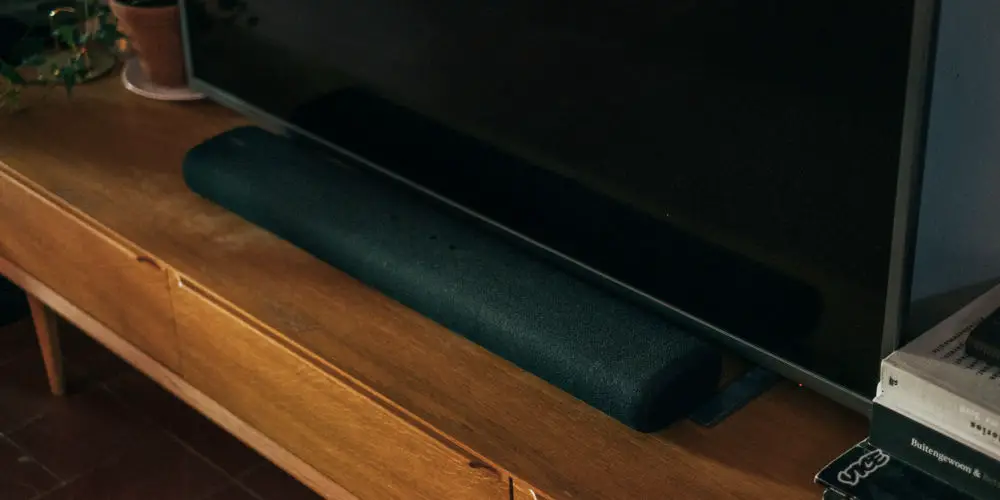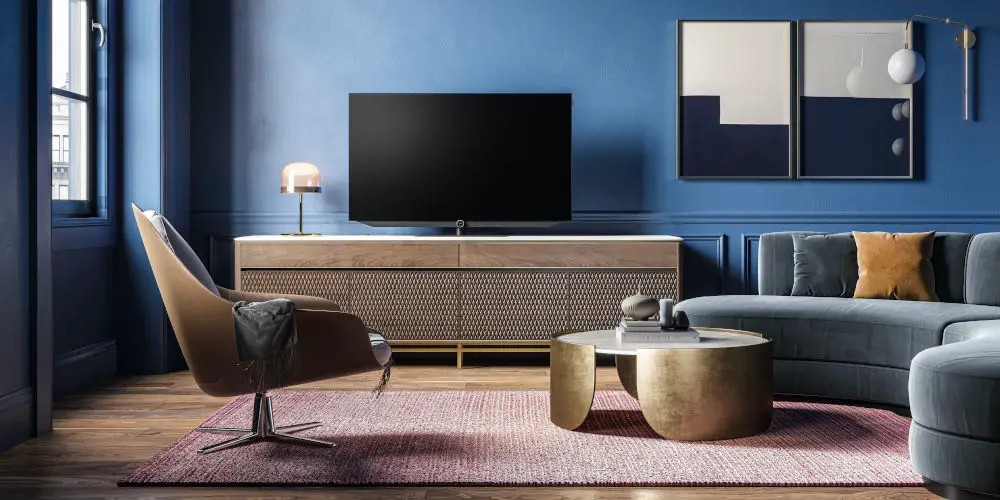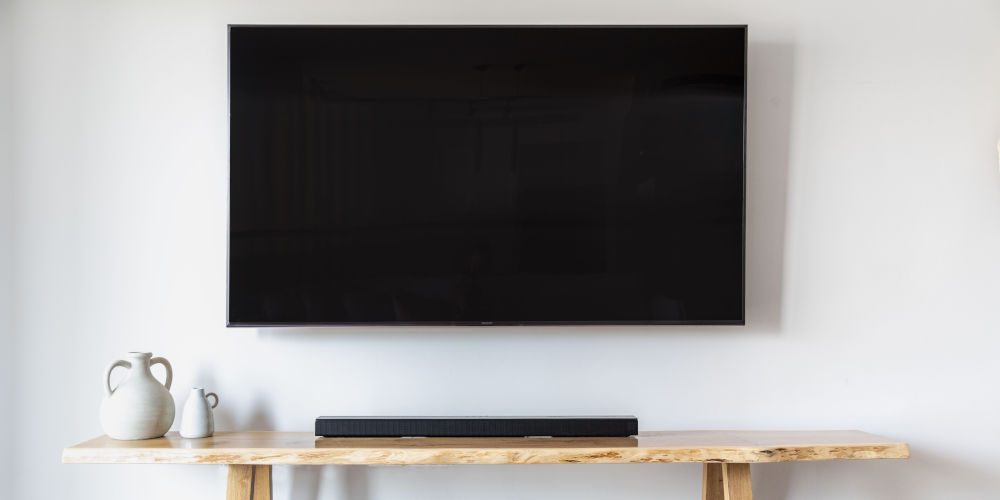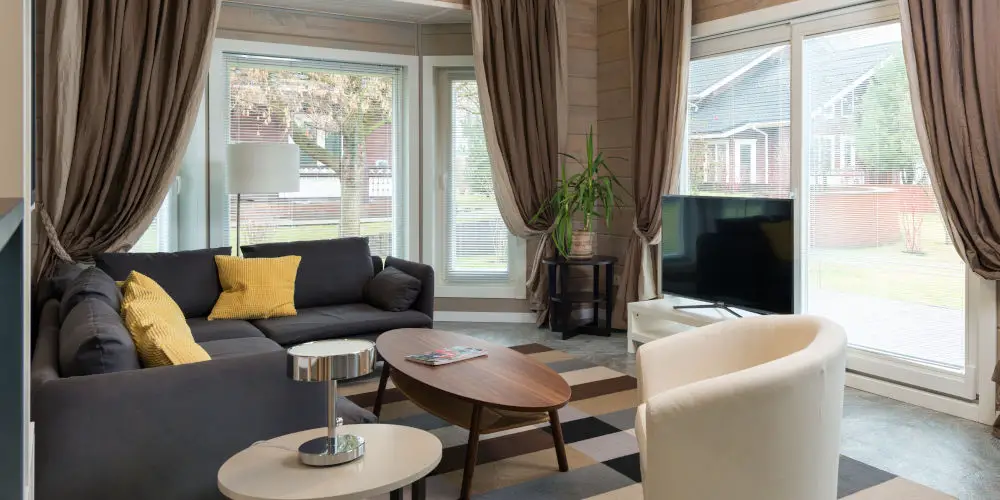Can you use a soundbar and TV speakers together?

Thanks to multiple reasons, the majority of TV speakers are poor at their job. Most Television’s speakers fail to reproduce a dynamic sound across the frequency range. So most people end up buying a soundbar. But, can you use a soundbar and TV speakers together?
As TVs become slimmer, the speakers have been relegated to the rear, meaning sounds have to bounce off the wall before reaching your ears. Another issue with our desire for compact televisions is the speakers have little room to move. So, they struggle to reproduce audio.
Soundbars solve these issues as they are specifically designed to create superb audio and sit in front of the TV, pushing the sound directly at your ears. With a soundbar, dialogue is clear, explosions feel dramatic, and music sounds rich.
For many, upgrading their TV speakers with a soundbar is improvement enough. Yet some still consider using a soundbar and TV speakers simultaneously. However, this is a novice mistake that doesn’t lead to a better overall sound!
So can you use a soundbar and TV speakers at the same time?
Do some TVs allow you to use the built-in speakers and soundbar together?
Many TVs will allow you to use their built-in speakers and a soundbar simultaneously. However, just because you can, doesn’t mean you should! If you want the best sound quality, turn off or disable the TV’s built-in speakers and only use the soundbar.
Combining a soundbar and TV speakers does nothing to improve your listening experience. Instead, it dilutes your sound and may detract from your listening experience rather than enhance it. That said, if you prefer the combined sound, go ahead, as you won’t damage either unit.

Why not use a Soundbar and TV speakers together?
It seems that TV manufacturers care more about visuals these days than sound. And while this isn’t completely true, it certainly feels this way.
Consumers want bigger yet slimmer televisions with little or no bezel. Creating TVs that match the user’s desires require a lot of engineering and design. It seems that the first major change is moving the speakers to the rear and only using small drivers that are tightly packed.
To faithfully reproduce the entire frequency range, speakers need space to push air and reverberate. Without space to move, they produce a flat, muffled sound.
As the speakers are at the rear, the sound has to reflect before hitting your ears, meaning you lose some of the immediacy you desire. You don’t want to hear an explosion a few milliseconds after it happens or notice a slight lag in dialogue.
The majority of TVs would be better off without speakers, allowing the user to customise an audio experience to match. It is the reason why many invest in a soundbar.
A well-designed soundbar such as the Samsung HW-N300 or the Sony HT-SF150 will enhance your TV experience for an affordable. Soundbars use a crossover to split the frequency range and multiple drivers to faithfully recreate the sound.
By using different speakers for the low, mid and high frequencies, you hear a more balanced sound that’s rich. Compare this to a TV that uses a single speaker to produce every frequency, and you can see why a soundbar is far superior.
Some think that using both a soundbar and TV speakers at the same time is a great idea. They wrongly assume, more speakers alone equal better sound. It doesn’t. For the best sound, you want correctly positioned speakers that handle a dedicated frequency band.
It’s worth also remembering that you can buy soundbars from Sony, Yamaha, Samsung and Sonos that are expandable using additional wireless speakers. You can start with a soundbar and add a subwoofer and rear speakers when you have the cash and create a surround sound system on the cheap.
Here are a few reasons why you shouldn’t simultaneously use a soundbar and TV speakers.
Do you hear an ECHO, Echo, echo?
The primary role of soundbars is to upgrade your TV speakers in seconds, without surgically replacing the built-in ones. Soundbars are not designed to work in parallel with your television’s built-in speakers.
Using them together may create an echo. The rear-mounted TV speakers need to bounce off a surface before reaching your ears. While the audio from the soundbar instantly hits your ears. You’ll hear the soundbar’s audio a few milliseconds before the sound from the TV’s speakers.
That said, the audio produced by the soundbar will be clearer, richer and more nuanced, whereas your TV might lack a punchy low end or sound muffled.
Overall, using both a soundbar and TV speakers together will lead to a poor listening experience, leaving you frustrated.

Controlling both can be difficult
Controlling a soundbar and TV speaker at the same time is more complex than you might think. To adjust the TV’s sound you need a remote and another separate remote for the soundbar. If you dislike having one remote, two will drive you mad!
Thankfully, you can either disable your television’s speaker or turn the volume off, and solely use a soundbar. You might need to adjust your TV’s audio settings to allow an external audio output. With this change, you should be able to adjust the level of your soundbar using the TV remote.
Using both at the same also means you’ll have to change sound modes on both units before you can enjoy a movie. If someone calls, you’ll need to find two remotes and push both mute buttons. Not to mention needing to rebalance them if someone adjusts only the TV or soundbar.
You’ll likely get annoyed using the two together and wonder why you put up with the inconvenience. Before long, you’ll end up deactivating your TV speakers and relying only on the soundbar.
Enjoy immersive sound for TV and movies
The speakers in your TV uses are cheap, small and ineffective. They aren’t designed to replicate the subtle nuances of everyday television shows, let alone movies. Plus, TV speakers typically face in one direction based on the make and model.
Your soundbar can handle all subtleties present in modern music and audio. Many soundbars use multiple, directionally placed speakers within the soundbar that create an immersive experience that matches the picture quality.
There are even soundbars that use sophisticated computer modelling to replicate the surround sound experience. Some even offer virtual Dolby Atmos experience. Both of these options improve movie watching as they sound close to a professional cinema room.

Can you use a soundbar and TV speakers at the same time?
Just because you can use a soundbar and TV speaker at once, doesn’t mean you should. Investing in a soundbar is worth it, especially as they instantly upgrade any TV’s sound and create a more immersive audio experience.
Hopefully, you have a clearer idea of why using a soundbar and TV speakers together is a bad idea. As soundbars are plug-in-and-play, getting set up takes minutes with plenty of connectivity options. Just remember to disable or mute the TV’s built-in speakers.




